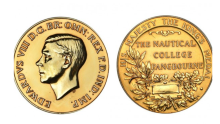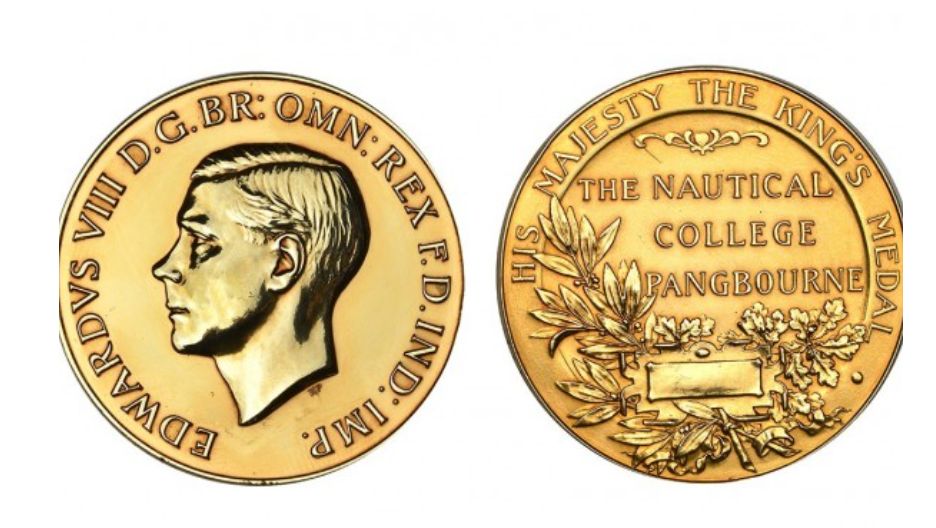
A group of Old Pangbournians, led by OP Society Chairman Phillip Plato (70-77), have ensured that a unique King’s Gold Medal awarded in 1936 to the then Chief of the College George Launchbury Bown (32-36) will return to Pangbourne College on permanent loan in the near future.
The medal, the only one awarded at the College during the brief 326-day reign of King Edward VIII, came up for auction at an international coins, medals and watches sale on September 7th 2021 together with an Elder Brethren of Trinity House gold watch, also presented to Bown.
The medal and watch combined had been predicted to fetch between £4,000-£5,000. Following substantial pre-sale interest, several bidders contested the auction. Ultimately, the Plato group of OPs prevailed at a cost of £21,896.
Once agreement is reached with the College over the terms of the memorabilia’s display and future ownership, it is hoped that the medal will form a centrepiece in a revamped permanent exhibition at the school.
At the time of the presentation on Founders’ Day 1936, Edward VIII was five months away from his abdication. As Prince of Wales, he had visited The Nautical College once and presented the inaugural Gold Medal awarded by his father King George V in 1927. Aside from being the only Gold Medal issued under the reign of Edward VII, it reflects the historic link between the Royal Family and Pangbourne College.
George Bown had had an outstanding career at the Nautical College Pangbourne (NCP), especially on the sports field. He was captain of the hockey, cricket, fencing, boxing, squash and fives teams and also was vice-captain of the successful 1935 rugby 1st XV.
At the NCP he passed the Civil Service Commission examination and entered what was then the Royal Military College at Sandhurst in late 1936. Commissioned into the Royal Gloucestershire Regiment in 1938, he transferred to the Indian Army with the rank of Captain in April 1940. Nothing is known about his subsequent military career in World War Two. However, at the start of 1946 he transferred back into the British Army by which time he was a Major.
Written by Robin Knight




.JPG&command_2=resize&height_2=85)
.JPG&command_2=resize&height_2=85)














